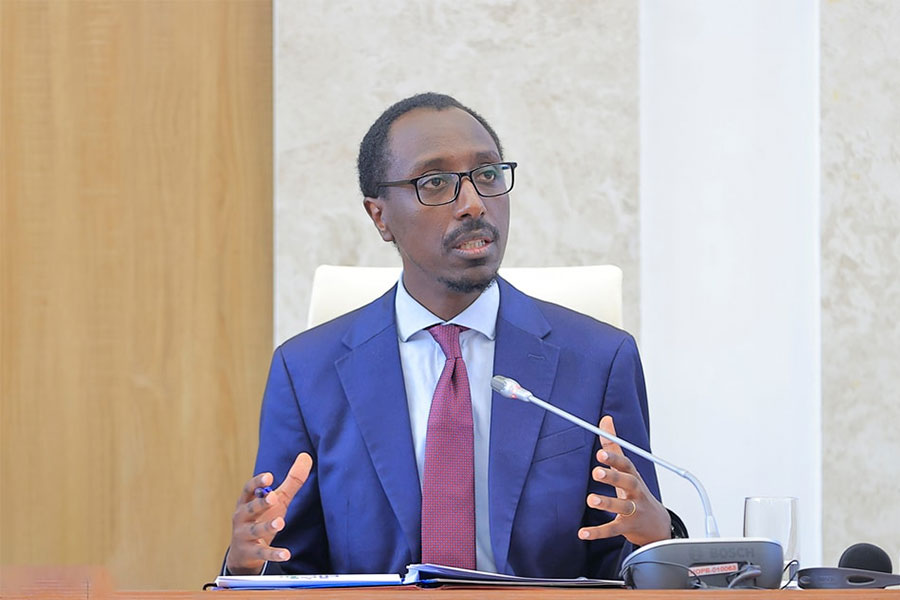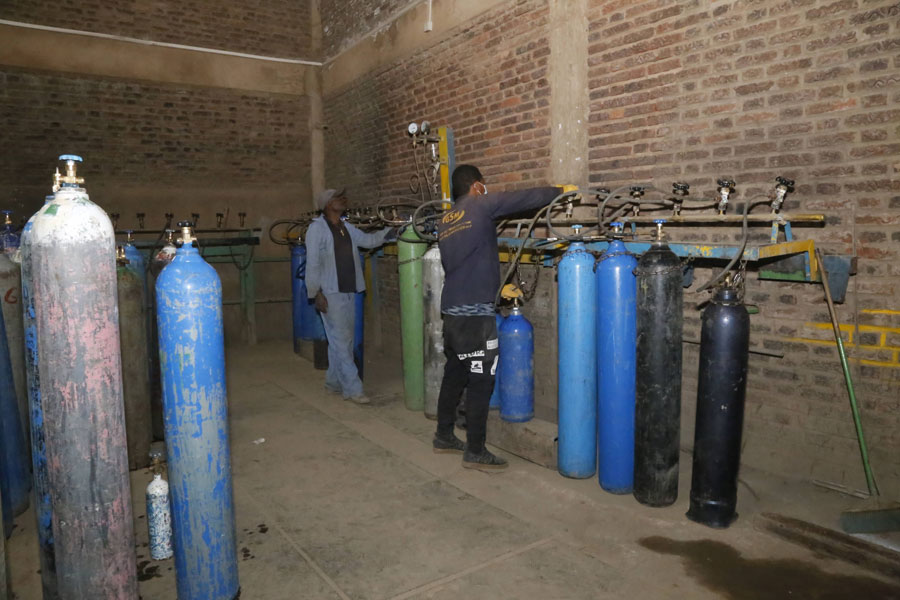
Verbatim | Jun 07,2025
Sep 6 , 2020
By Belay Asrat
There was a lack of solid understanding on the advocacy role of civil society by both the government and the emerging civil society. Neither has demonstrated a satisfying grasp of the concept and the art of effective lobbying for public policy issues, writes Belay Asrat (asratbelay@gmail.com), former employee of Ethio telecom and the Finance Ministry, who is currently a consultant.
The foundation of civil society in Ethiopia goes back to the 1930s, as a factor of urbanisation and self-help traditional associations, and later in 1960, when they were recognised and codified. Those limited civil society organisations were concentrated on relief, rehabilitation and emergency support when the country was stricken by drought, famine and war.
Their role was strengthened and emboldened during a time of relative political stability and freedom, between 1991 and 2008. However, the aftermath of the 2005 national election created a rift between the government and civil society, the latter of which was blamed for partisanship. A new piece of legislation that governs charities and civil societies was put in place in 2009 and imposed organisational and operational limitations.
The fault might have been on both sides. There was a lack of solid understanding on the advocacy role of civil society at that time. Neither government nor the emerging civil society demonstrated much grasp on the concept and the art of effective lobbying for public policy issues.
An empowered civil society is a key component of any democratic system. It promotes pluralism, contributes to more effective policies, helps sustain inclusive growth and plays a pivotal role in fostering peace and in conflict resolution.
By virtue of their defined role, civil societies are usually supposed to articulate citizens’ concerns and advance their interests and future aspirations while government assumes the primary responsibility for the development of good governance. It is important to maintain the synergy between government and CSOs to overcome the challenges of poverty, widening inequalities, social exclusion and under-development.
The third sector, civil societies, can effectively influence the building of accountable and legitimate states, leading to the formation of social cohesion and more open and deeper democratic values in the public consciousness.
To do this, civil societies have yet to improve their public perceptions. They have come to be viewed as cash cows, ineffective and donor-centred instead of focusing on the persons they purport to help. They have been branded as ‘briefcase NGOs,’ with no real base in the communities that they claim to serve. Their employees are accused of career advancement at the expense of their duty to help, constantly picked on for the above-average salaries and benefits packages they receive compared to many employees in government or even the private sector.
Some of these criticisms are true. Fortunately, there are also civil society organisations that are working hard for their communities to change the situation on the ground and address poverty and the lack of protected rights. There are several cases where their hard work, impartiality and significant interventions have been demonstrated. They are not all “Lords of Poverty,” as Graham Hancock, a British writer, once described non profit organisations. Their firm commitment to their beneficiaries deserves a tip of the hat.
Ethiopia’s constitution and laws promote civic engagement, particularly in the context of the decentralisation of authority entrusted to lower levels of government structure to improve service delivery to the people. Decentralisation was mainly designed to ensure that development plans are responsive to local objective realities and to enhance the efficient delivery of public services.
But the emphasis given to the role of citizens to ensure the accountability of service providers and encourage responsiveness initiated by various public sector reform programmes has left much to be desired. If CSOs do well at all, their progress is not long-lasting. Some project interventions work well, that is, in terms of social accountability, civil society support and local capacity building.
The experience elsewhere in the world shows the enhanced civic engagement benefits for governments, including increased effectiveness, legitimacy, credibility, efficient resource allocation, political stability, improved citizen-state relationships and enhanced democratisation.
The effectiveness of civic engagement requires an enabling environment, one that promotes awareness of the rights, responsibilities and entitlement of citizens for better quality public services delivery and empowers citizens to participate in, negotiate with and hold accountable service providers and public policymakers. It also promotes the participation of citizens and communities in the planning, budgeting, implementation and monitoring of the quality and quantity of service delivered to them and ensures that policymakers and public service providers are given the capacity to respond to the community’s needs and preferences.
It was for the sake of citizens that amending civil societies and charities was necessary. The revision of the law attempted to address shortcomings, including restrictions to sources of funding. Although civil societies have raised issues with the revision as well, such as the 20pc limit for administrative expenses, the changes have largely been in their interests. It gives them enough wiggle room to be a voice for the voiceless and a real bridge between the community and government.
Thus, it is the right time for the citizenry to put forth a challenge to the government to be open, transparent, accountable, responsive and answerable to the people, and to the civil societies to be accountable to their constituency, impartial and valuable for the time and money they require.
Their relevance has grown in inverse proportion to the political instability of the country. Human lives are being lost and property is being destroyed as a result of political violence. There is an ever-greater need for a political settlement between all the parties, which can be moderated by civil society groups. It is, therefore, the time for civil society groups to redress and rebrand themselves to effectively enhance the civic engagement endeavour upfront and ground it firmly.
There are good examples where this has worked. Interventions by civil societies in weredashave been more successful than others in confronting violence and conflicts. This was through a series of awareness programmes and consistent dialogues undertaken between the community and local officials using scientific tools, that is, the community scorecard.
Since building an effective local civic sphere is thought to be the primary goal of local participatory development, the aim should be a harmonisation and reconciliation process to develop social co-existence and bequeath a prosperous nation to the next generation.
After all, it takes a village to raise a child.
PUBLISHED ON
Sep 06,2020 [ VOL
21 , NO
1062]


Verbatim | Jun 07,2025

Radar | May 18,2024

Commentaries | Mar 23,2024

Commentaries | Sep 27,2020

Commentaries | May 04,2019

Viewpoints | Nov 21,2018

Radar | Dec 05,2020

Sunday with Eden | Oct 16,2020

Agenda | May 15,2021

Radar | Nov 16,2019

My Opinion | 131970 Views | Aug 14,2021

My Opinion | 128359 Views | Aug 21,2021

My Opinion | 126297 Views | Sep 10,2021

My Opinion | 123912 Views | Aug 07,2021

Dec 22 , 2024 . By TIZITA SHEWAFERAW
Charged with transforming colossal state-owned enterprises into modern and competitiv...

Aug 18 , 2024 . By AKSAH ITALO
Although predictable Yonas Zerihun's job in the ride-hailing service is not immune to...

Jul 28 , 2024 . By TIZITA SHEWAFERAW
Unhabitual, perhaps too many, Samuel Gebreyohannes, 38, used to occasionally enjoy a couple of beers at breakfast. However, he recently swit...

Jul 13 , 2024 . By AKSAH ITALO
Investors who rely on tractors, trucks, and field vehicles for commuting, transporting commodities, and f...

Jul 5 , 2025
Six years ago, Ethiopia was the darling of international liberal commentators. A year...

Jun 28 , 2025
Meseret Damtie, the assertive auditor general, has never been shy about naming names...

Jun 21 , 2025
A well-worn adage says, “Budget is not destiny, but it is direction.” Examining t...

Jun 14 , 2025
Yet again, the Horn of Africa is bracing for trouble. A region already frayed by wars...

Jul 6 , 2025 . By BEZAWIT HULUAGER
The federal legislature gave Prime Minister Abiy Ahmed (PhD) what he wanted: a 1.9 tr...

Jul 6 , 2025 . By YITBAREK GETACHEW
In a city rising skyward at breakneck speed, a reckoning has arrived. Authorities in...

Jul 6 , 2025 . By NAHOM AYELE
A landmark directive from the Ministry of Finance signals a paradigm shift in the cou...

Jul 6 , 2025 . By NAHOM AYELE
Awash Bank has announced plans to establish a dedicated investment banking subsidiary...